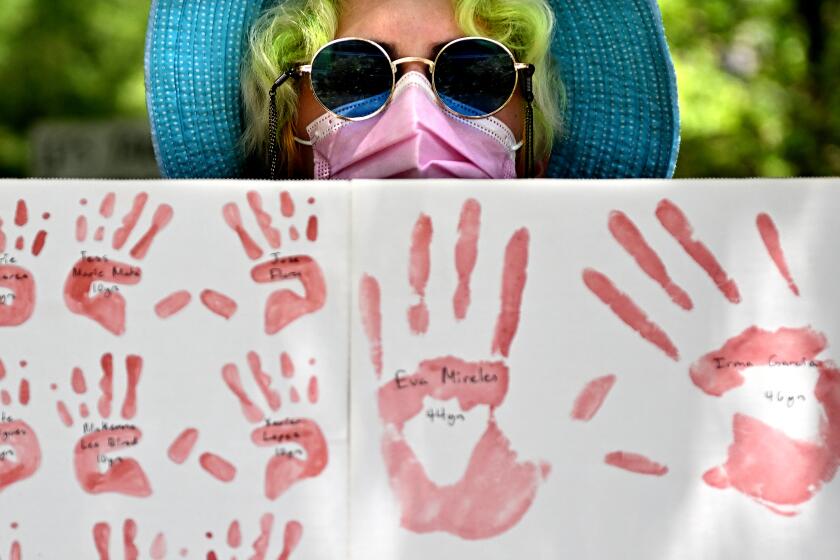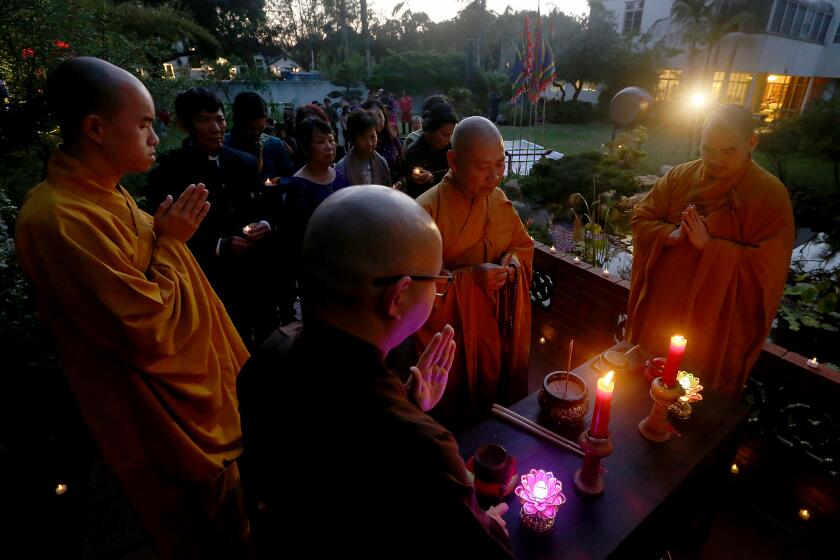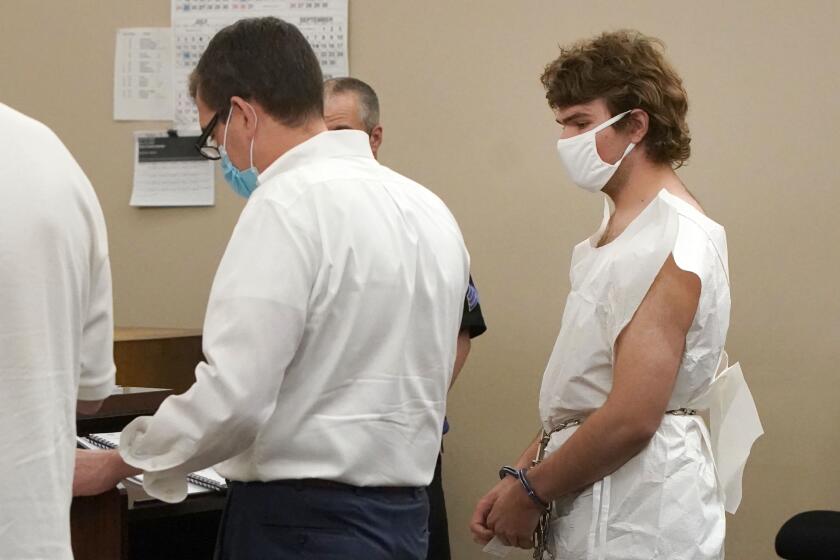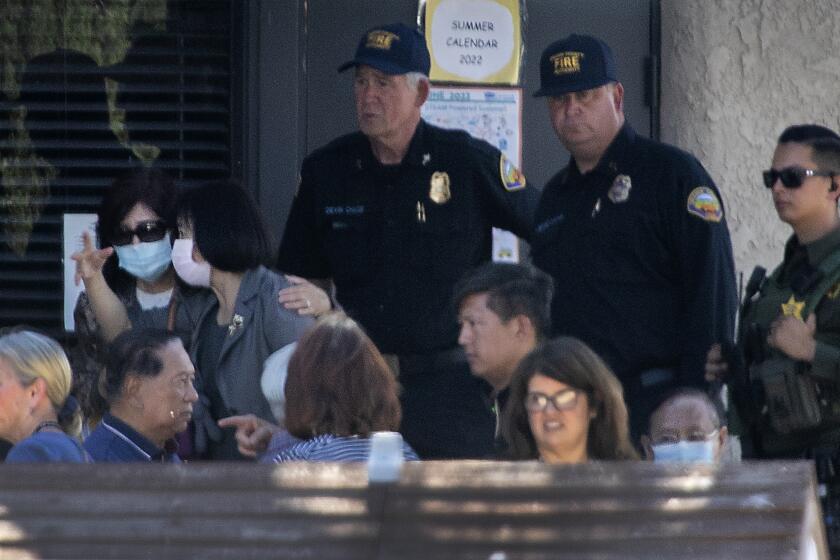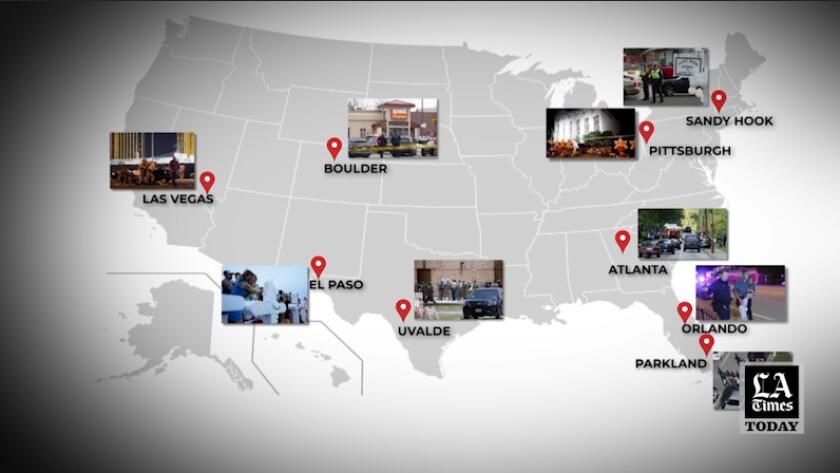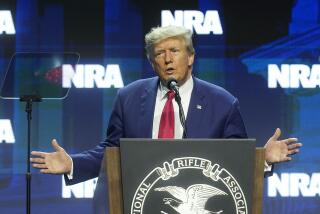Column: Day after day of gun violence in America. Nothing changes
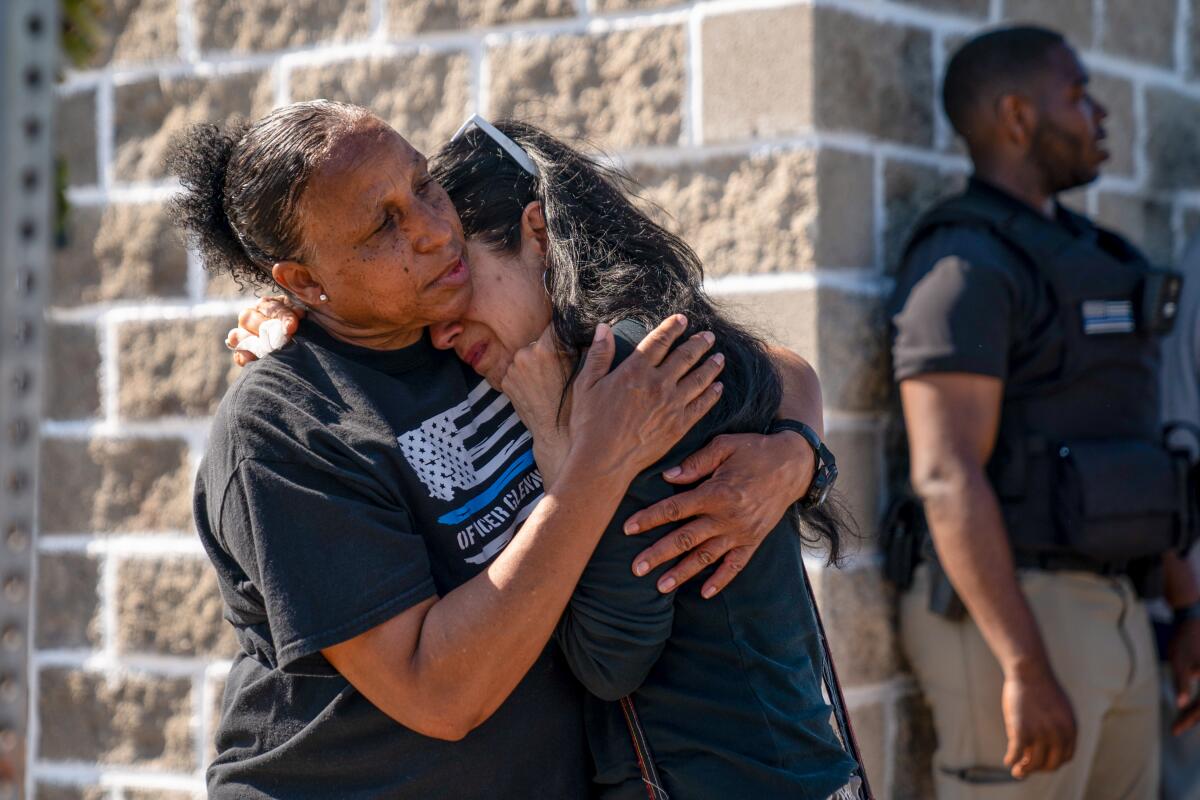
- Share via
Nothing changed after moviegoers were slaughtered in Aurora. Nothing changed after children were massacred in Newtown, after worshipers were killed inside a church in Charleston, after office workers were mowed down at a holiday party in San Bernardino.
I wrote those words in June 2017, after Republican members of Congress were attacked by a gunman on a softball field just outside the nation’s capital.
Nothing changed.
Except, of course, there have been a great many more mass shootings, adding Atlanta; Orlando, Fla.; Las Vegas; El Paso; Pittsburgh; Boulder, Colo.; Parkland, Fla.; and many other cities, large and small, to the sanguinary toll.
The gunman posted his intentions on Facebook before shooting his grandmother, going to the elementary school and barricading himself in a classroom.
The latest violent spasms came this past weekend in Buffalo and Orange County, where 11 people were killed and seven were wounded while, respectively, shopping at the supermarket and enjoying an after-church lunch. Mondays used to be the day to recount the big sports news from the weekend. Now we tote up gun carnage.
Nothing has changed, except a loosening of gun laws throughout much of the country, where promiscuity is a celebrated virtue when it comes to the availability of firearms.
In San Francisco last week a federal appeals court ruled that California’s ban on selling semiautomatic rifles to anyone under 21 violates the constitutional right to bear arms for self-defense. It’s impermissible to buy a six-pack, but OK to wield a knockoff AK-47.
The shooter in Buffalo was 18.
A gunman attacked a lunch banquet at a Taiwanese church in Laguna Woods, killing one person and wounding five others Sunday before congregants tackled him, hogtied him with an extension cord and grabbed his two weapons, authorities said.
For days now, the airwaves and social media have been filled with the voices of young people, thick with righteousness and anger, vowing never again.
I wrote those words in February 2018, days after a gunman slaughtered 17 people at Marjory Stoneman Douglas High School in Parkland.
The young white man who killed 10 people in Buffalo represents a new generation of white supremacists: isolated and online, radicalized on internet memes and misinformation, inspired by livestreams to find fame through bloodshed.
I posed a question then: Will the student-led protests against gun violence dramatically change politics and lead the president and Congress to act in a way that other explosions of fury and grief — after Virginia Tech, Aurora, Newtown, Charleston, San Bernardino, Orlando and Las Vegas did not?
The answer is no.
There have been many attempts to pass national gun control laws since 1994, when Democratic lawmakers led by California Sen. Dianne Feinstein pushed through a ban on the possession, manufacture, use and importation of 19 types of semiautomatic firearms. Many Democrats paid by losing their seats that November. The ban was allowed to lapse 10 years later.
The debate over guns and gun control in many ways distills the very essence of politics today, where opposing sides don’t simply differ on philosophical or ideological grounds but fail to agree on even the basic facts.
It also underscores the power of one of the country’s mightiest special-interest groups, the National Rifle Assn., and its hold over Republican lawmakers whose greatest fear is not losing an election to a Democrat but, given gerrymandering, a Republican primary opponent with an even harder-line view on guns.
That is one reason Congress has failed to pass a law requiring universal background checks, even though the overwhelming majority of Americans express their support. Notwithstanding that fact, the overwhelming majority of Americans don’t vote in individual GOP primaries.
I wrote those words back in 2017. Though the NRA has struggled with internal scandal, the fundamental politics surrounding gun control remain the same.
The sway of the NRA and other groups opposing tougher gun laws is also a function of one of the most fundamental tenets of politics: intensity and persistent engagement matters far more than raw numbers.
Supporters of unfettered gun rights may be “a minority of the population but they have a degree of loyalty and emotional attachment to their movement that isn’t reflected on the opposing side,” said Robert Spitzer, a professor of political science at State University of New York at Cortland.
“It’s only when the mass shooting occurs that the public pays real attention,” said Spitzer, who has written five books on gun policy. “But the sentiment doesn’t last long. Most people turn their attention back to other things, as does the media, and soon it’s back to business as usual.”
I wrote those words in 2018.
Nothing has changed.
The shooting at the church left one dead, five wounded and the surrounding community stunned and in mourning.
This is the last column on gun violence I intend to write for some time, maybe ever. What’s the point? It’s all repetition, and that repetition is maddening and sickening.
People die, horribly and needlessly, and the status quo abides.
You can be sure a great many more mass shootings will follow and the toll will keep growing ever higher. Barring a fundamental shift, Congress will fail to pass meaningful gun control legislation.
Nothing changes.
- Share via
Watch L.A. Times Today at 7 p.m. on Spectrum News 1 on Channel 1 or live stream on the Spectrum News App. Palos Verdes Peninsula and Orange County viewers can watch on Cox Systems on channel 99.
More to Read
Get the latest from Mark Z. Barabak
Focusing on politics out West, from the Golden Gate to the U.S. Capitol.
You may occasionally receive promotional content from the Los Angeles Times.

